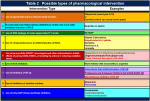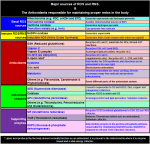Hi, i have had persistently low ferritin and MCH for years. My ferritin was at about 5 but with two years of iron supplements it has gone up to on;ly 11. My MCH is always low. My B12 is low side of normal (240) My GP is not concerned about this as my 'iron count' is just about normal so he says i am not aenemic. I'm now using a transdermal iron spray and hope to get tested soon.
Does anyone here know much about waht MCH is and its implications - all i could find on the net said that it could mean i have 'aenemia of chronic illness' - what does that mean!?
I have been aenemic in the past, starting at age 11 and then on and off my whole life. I was tested for coeliac - the range was 1-10 and mine came back at 10 so considered normal (i presume if it was 11 they would have said i was coeliac) i have tried a gluten free diet for as long time and when i gave up on it last year oit seemed to make no difference to my health at all. Infact some pof the gluten free substitutes were definately upsetting my gut (mainly corn i think)
Thanks, Justy.
Just remembered, low haematocrit too.
Does anyone here know much about waht MCH is and its implications - all i could find on the net said that it could mean i have 'aenemia of chronic illness' - what does that mean!?
I have been aenemic in the past, starting at age 11 and then on and off my whole life. I was tested for coeliac - the range was 1-10 and mine came back at 10 so considered normal (i presume if it was 11 they would have said i was coeliac) i have tried a gluten free diet for as long time and when i gave up on it last year oit seemed to make no difference to my health at all. Infact some pof the gluten free substitutes were definately upsetting my gut (mainly corn i think)
Thanks, Justy.
Just remembered, low haematocrit too.


